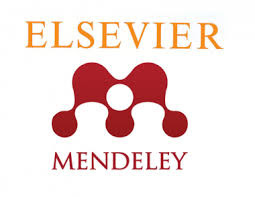INTERNATIONAL JOURNAL OF CREATIVE RESEARCH THOUGHTS - IJCRT (IJCRT.ORG)
International Peer Reviewed & Refereed Journals, Open Access Journal
ISSN Approved Journal No: 2320-2882 | Impact factor: 7.97 | ESTD Year: 2013
Call For Paper - Volume 12 | Issue 7 | Month- July 2024
Scholarly open access journals, Peer-reviewed, and Refereed Journals, Impact factor 7.97 (Calculate by google scholar and Semantic Scholar | AI-Powered Research Tool) , Multidisciplinary, Monthly, Indexing in all major database & Metadata, Citation Generator, Digital Object Identifier(DOI)
Contact Us Click Here
WhatsApp Contact Click Here
Published Paper Details:
Paper Title
Consumers Who Abuse Both Caffeine & CNS Stimulant Drugs Encounter Withdrawal Symptoms as Well as An Impairment in Their Ability to Reason for Cognitive Behavior.
Authors
Dr. Darshan Champaneria, Dr. Mayur Kanani
Keywords
Caffeine, CNS Stimulant Drugs, Opioids, Alcohol-induced disorders, Alcohol-induced neurocognitive disorder
Abstract
Abstract: - Humans have always tried to increase their cognitive capacities through a variety of methods, including the usage of stimulants. Healthy people use prescription drugs like methylphenidate and modafinil as well as commonly available stimulants like caffeine to improve their cognitive function. For the treatment of sleep disorders such as narcolepsy, obstructive sleep apnea syndrome, and shift work sleep disorder, doctors routinely prescribe modafinil, a non-amphetamine stimulant. Additionally, research has shown that Modafinil improves cognitive abilities. Thus, it is increasingly being used by healthy people to increase alertness or lessen feeling fatigued. Patients receiving modafinil for the treatment of cognitive impairment who have psychiatric illnesses have also reported experiencing similar effects. According to clinical studies, modafinil reduces the symptoms of attention-deficit hyperactivity disorder (ADHD), schizophrenia, and significant depression in patients. When evaluating patients, psychiatrists hardly ever ask about coffee consumption. This could fail to recognize caffeine-related issues and provide effective remedies. A lot of psychiatric diseases share symptoms with excessive coffee consumption. People with eating problems frequently abuse caffeine, which has been linked to the aggravation of sleep and anxiety issues. It blocks adenosine receptors, which could increase dopaminergic activity and make psychosis worse. Caffeine has been reported to exacerbate psychotic, hostile, and anxious symptoms in mental patients. Before administering hypnotics, a routine mental evaluation of the patient's coffee use should be conducted. It is probably better to gradually cut back on consumption or gradually switch to caffeine-free alternatives than to stop suddenly. In psychiatric wards, decaffeinated beverages should be available.
Background: - Many different bioactive chemicals found in caffeine, which is extensively ingested in beverages including coffee, chocolate, and soft drinks, may have an impact on disease-related pathway activity. The Diagnostic and Statistical Manual of Mental Disorders (DSM-V) now includes revised guidelines for disorders associated with caffeine consumption. The diagnosis of caffeine withdrawal is now formally recognized, and criteria for caffeine use disorder have been put forth for further research. Similar to other substance use disorders, caffeine use disorder is supposed to be characterized by cognitive, behavioral, and physiological symptoms suggestive of caffeine use despite serious caffeine-related issues. However, given the prevalence of non-problematic caffeine use, some medical professionals may find it challenging to accept the potential that caffeine consumption might lead to the same pathological behavior as alcohol, cocaine, opiates, or other drugs of abuse. When evaluating patients, psychiatrists hardly ever ask about the consumption of caffeine. This could fail to recognize caffeine-related issues and provide effective remedies. A lot of psychiatric diseases share symptoms with excessive coffee consumption. People with eating problems frequently abuse caffeine, which has been linked to the aggravation of sleep and anxiety issues. Adenosine receptors are inhibited, which could increase dopaminergic activity and aggravate psychosis. Caffeine has been observed to exacerbate psychotic, hostile, and anxious symptoms in mental IPD patients. A routine psychiatric examination of caffeine consumption drinks (coffee, soft drinks, chocolates, etc.) should be conducted before prescription hypnotics. A gradual decrease in consumption or a gradual switch to caffeine-free alternatives is likely preferable to a sudden end. There should be decaffeinated beverages available in the Psychiatry ward.
Objective: - The objective of this article is to give a thorough review and analysis of the research on human caffeine withdrawal to evaluate key aspects of the disease and empirically validate particular symptoms and indicators. To evaluate key aspects of health issues and the impact of cognitive behavior, this paper publication will present a thorough review and analysis of the literature on human consumption of caffeine withdrawal. Specific symptoms and signs will be validated through empirical research.
Methods: - A literature search revealed found several survey research articles and some clinical investigations on the consumption of caffeine or addiction withdrawal which fulfilled the inclusion criteria. A relevant article was found by searching for terms like caffeine abuse, CNS stimulants, and alcoholism on relevant search engines such as Google Scholar, and PubMed, Research Gate. The methodology of each study was assessed to ascertain the validity of the effects.
Results: - Compared to conventional psychostimulants like amphetamine, methylphenidate, or cocaine, modafinil is recognized to have fewer or no negative side effects. As an antipsychotic or anti-fatigue agent, it is usable. Modafinil's awakening process hasn't been fully uncovered, though. According to recent studies, modafinil usage and addiction are possible. Additionally, ongoing insomnia triggers stress reactions and impedes immunological performance. Therefore, a routine psychological assessment should include a caffeine intake examination. This is crucial for individuals who struggle with substance abuse, food disorders, sleep difficulties, and anxiety. The assessment of alcohol and drug usage can readily include assessment. It is fair to inquire about the usage of over-the-counter products containing caffeine in patients who abuse drugs or have eating disorders.
Conclusion: - Anyone who needs to stay awake, work late, improve cognitive reactions, or lift their mood can utilize modafinil. Users, such as cancer patients or troops in a combat zone, may already be experiencing high levels of stress. Investigating the several functions of modafinil requires a psychoneuroimmunological approach. The caffeine-withdrawal syndrome has been adequately described, and there is enough research evidence to support its inclusion as a condition in the DSM and a change to the ICD's diagnostic criteria. It would seem that caffeine is not a "pure" cognitive enhancer. Caffeine's indirect effects on arousal, mood, and focus are a major factor in how well it might enhance cognition.
IJCRT's Publication Details
Unique Identification Number - IJCRT2307437
Paper ID - 241287
Page Number(s) - d789-d797
Pubished in - Volume 11 | Issue 7 | July 2023
DOI (Digital Object Identifier) - http://doi.one/10.1729/Journal.35285
Publisher Name - IJCRT | www.ijcrt.org | ISSN : 2320-2882
E-ISSN Number - 2320-2882
Cite this article
Dr. Darshan Champaneria, Dr. Mayur Kanani, "Consumers Who Abuse Both Caffeine & CNS Stimulant Drugs Encounter Withdrawal Symptoms as Well as An Impairment in Their Ability to Reason for Cognitive Behavior.", International Journal of Creative Research Thoughts (IJCRT), ISSN:2320-2882, Volume.11, Issue 7, pp.d789-d797, July 2023, Available at :http://www.ijcrt.org/papers/IJCRT2307437.pdf
Article Preview
Indexing Partners
Call For Paper July 2024
Call For Papers
July 2024
Volume 12 | Issue 7
Last Date :
31-Jul-2024
Submit Manuscript Online Impact Factor: 7.97 Review Results : Within 02-03 Days Paper Publication : Within 02-03 Days
July 2024
Volume 12 | Issue 7
Last Date :
31-Jul-2024
Submit Manuscript Online Impact Factor: 7.97 Review Results : Within 02-03 Days Paper Publication : Within 02-03 Days
Published Issue Details
For Authors
Forms / Downloads
Other IMP Links
Indexing Partner
Research Area
LICENSE
ISSN and 7.97 Impact Factor Details

ISSN: 2320-2882 Impact Factor: 7.97 and ISSN APPROVED Journal Starting Year (ESTD) : 2013
ISSN and 7.97 Impact Factor Details

ISSN: 2320-2882 Impact Factor: 7.97 and ISSN APPROVED Journal Starting Year (ESTD) : 2013
DOI Details
CONFERENCE
CONFERENCE MANAGMENT & PUBLICATION CONFERENCE PROPOSAL
RECENT CONFERENCE

CONFERENCE PROPOSAL CONFERENCE PROCEEDINGS

CONFERENCE PROPOSAL CONFERENCE PROCEEDINGS
For Reviewer /Referral (RMS) Earn 500 per paper
Important Links
NEWS & Conference
Digital Library
IJCRT RMS | Earn 500 Per Paper.
LICENSE
Indexing Partner





































































